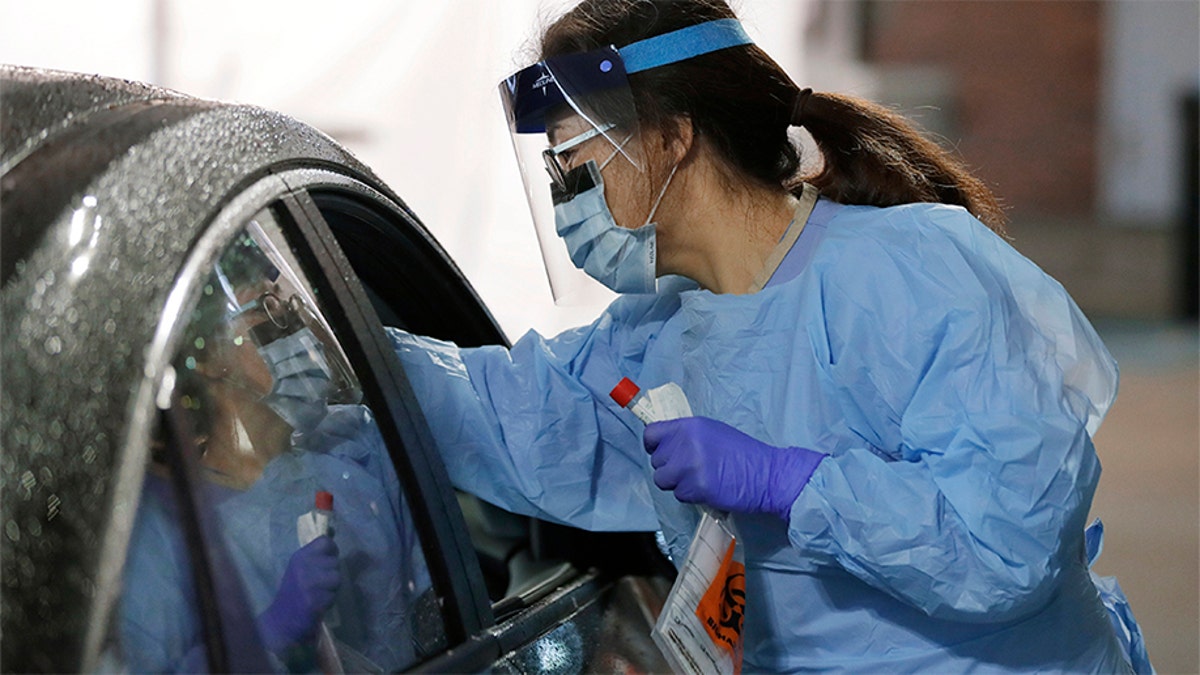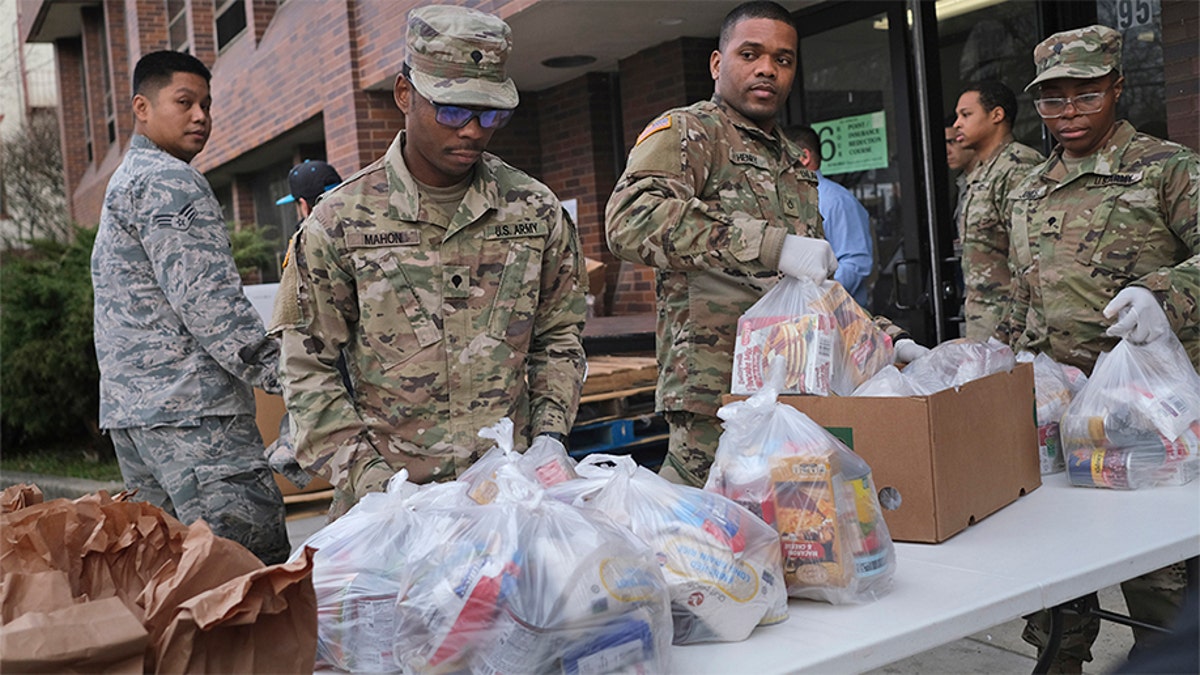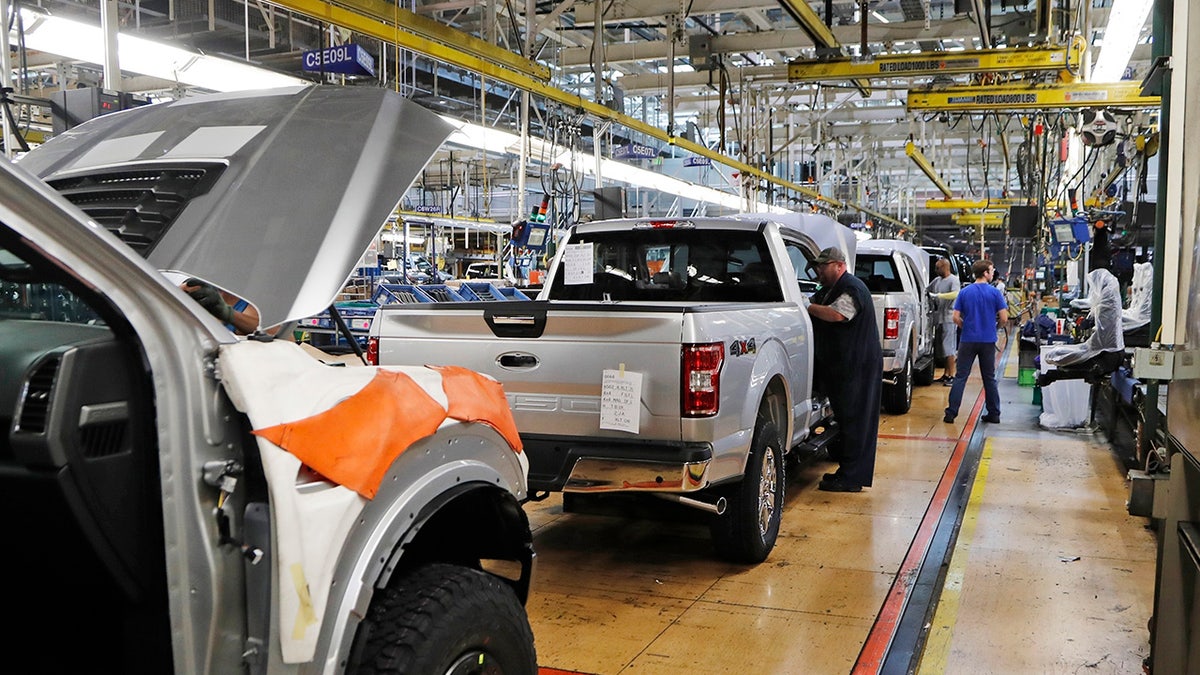President Trump says US is on wartime footing in battle against coronavirus pandemic
Trump signs the Defense Production Act to possibly ramp up inventories of desperately needed medical supplies; chief White House correspondent John Roberts reports.
Get all the latest news on coronavirus and more delivered daily to your inbox. Sign up here.
As the coronavirus outbreak continues to disrupt American life, numerous actions have been taken – in Washington, in state capitals and at the local level – to help get a grip on a situation that threatens to spin out of control.
In Washington, President Trump said Wednesday he would invoke the Defense Production Act, a move designed to help private businesses ramp up production and distribution of medical supplies and equipment needed to combat the virus also known as COVID-19.
“If we need to use it we’ll be using it,” the president said. “It’s full speed ahead.”
On a day that saw confirmed U.S. cases of the virus surpass 9,300 and deaths top 130, Trump also signed a second coronavirus relief bill that called for providing paid sick leave, unemployment aid and free testing to the public.

A nurse at a drive-up coronavirus testing station set up by the University of Washington Medical Center uses a swab to take a sample from the nose of a person in a car Friday, March 13, 2020, in Seattle. (Associated Press)
Trump and members of Congress also were considering providing as much as $300 billion to the airline industry and other distressed businesses.
Total projected government expenditures as high as $1 trillion – including proposed checks paid directly to the public – seemed contrary to everything the Republican Party normally preaches about fiscal responsibility. But these are unusual circumstances, some party members noted.
“These are not ordinary times. This is not an ordinary situation,” Senate Majority Leader Mitch McConnell, R-Ky., told reporters Tuesday, according to Politico. “So it requires extraordinary measures.”
“These are not ordinary times. This is not an ordinary situation. So it requires extraordinary measures.”
Border clampdowns
And just a week after the president announced new restrictions on travel between the U.S. and Europe, Trump said the U.S. and Canada would temporarily close their shared border to non-essential traffic.
Officials from Immigration and Customs Enforcement (ICE) said they would focus only on the most critical cases in a bid to avoid bringing the virus inside the agency’s detention centers for illegal immigrants.
New York and California, two states among those hardest hit by the outbreak, were anticipating the arrival of hospital ships from the U.S. military in order to expand the number of available beds for people stricken with the virus.
The USNS Mercy hospital ship, based on the West Coast, was expected to be deployed "in days," military officials told the AP, while the USNS Comfort, undergoing maintenance in Norfolk, Va., was expected in New York City within two weeks.
In addition, the Defense Department made 1 million respiratory masks available to the Department of Health and Human Services and planned to provide 4 million more, Defense Secretary Mark Esper said Wednesday.
Other examples of military assistance included the deployment of 23,000 National Guard members in 23 states to assist at emergency operations centers, provide transportation to health care providers and collect and deliver test samples.

Members of the New York National Guard help to organize and distribute food to families on free or reduced school lunch programs in New Rochelle, N.Y., Thursday, March 12, 2020. (Associated Press)
If matters worsen, military personnel can provide a range of services from "mass casualty" medical treatment to postal delivery and water and sewer services, the Defense Department said.
'The right thing to do'
In Ohio, Republican Gov. Mike DeWine was drawing praise for his early actions to limit public gatherings and acting to postpone the state’s primary elections, which had been scheduled for Tuesday.
“Everybody has to make their call and what they think is the right thing to do,” DeWine said Monday, according to the Associated Press. “This is a time when every governor understands the gravity of what they are doing.”
On the local level, police in cities such as Fort Worth, Texas, and Denver stopped making arrests for low-level crimes, while courthouses throughout the country were delaying trials and canceling jury duty – all efforts to slow the spread of the virus.
In Philadelphia and Chicago, parking officials said they won’t issue tickets except on extreme cases, like when a vehicle blocks a fire hydrant, the AP reported.
“This pandemic requires us all to think differently,” Philadelphia District Attorney Larry Krasner told the AP.
“This pandemic requires us all to think differently.”
The various actions came amid some troubling new developments.
Wall Street had another bad day Wednesday, dropping some 1,300 points and thus losing all the gains it had made since Trump took office.
Jobless claims spike
States across the country also reported a spike in jobless claims as airlines, restaurants and other businesses laid off staff.
In Tennessee, for example, new unemployment claims tripled over the past week, according to the Associated Press. Michigan reported five times the normal number of claims and Minnesota reported receiving more than 2,000 claims per hour – far above the usual 40 or 50 per hour.
In Michigan, the three major automakers said they planned to lay off a total of about 150,000 workers.

United Auto Workers assembly workers assemble 2018 Ford F-150 trucks at the Ford Rouge assembly plant in Dearborn, Mich., Sept. 27, 2018. (Associated Press)
The United Auto Workers union had been pushing for plant closures out of concern that workers would come in contact with the coronavirus – and then infect their families.
“That’s the thing that I was scared the most about, being the one to bring it home to them,” autoworker Tommy Wolikow, a GM employee and union member, told the Associated Press.
“That’s the thing that I was scared the most about, being the one to bring it home to them.”
And the nation kept hearing heartbreaking tales of the outbreak’s effects on other ordinary American families.
In New Jersey, Grace Fusco, a 73-year-old mother of 11 and grandmother or 27, died of the virus Wednesday night -- just hours after losing a son and five days after losing a daughter to the outbreak, The New York Times reported.
CLICK HERE FOR COMPLETE CORONAVIRUS COVERAGE
Other members of the family remained quarantined in their homes, unable to gather in remembrance of their lost relatives.
“It’s so pitiful,” Paradiso Fodera, a spokeswoman for the family told The Times. “They can’t even mourn the way you would.”
The Associated Press contributed to this story.













































